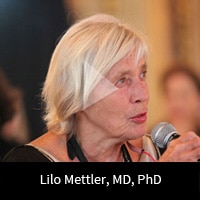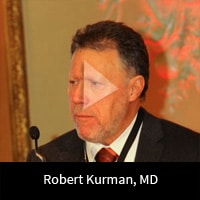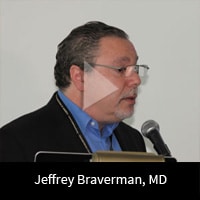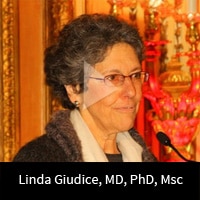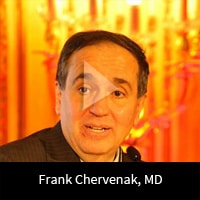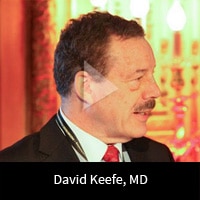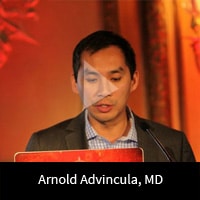EndoFound’s 5th Annual Endometriosis Conference
As an endometriosis patient and advocate, it was so exciting to attend the EndoFound’s Annual Medical Conference and Patient Symposium. Some of the top doctors who are dedicating their lives to improve the quality of life for endometriosis patients worldwide shared a lot of wonderful information. Co-founders of the EndoFound Dr. Tamer Seckin and Padma Lakshmi were there every step of the way sharing their insights and experiences as the days progressed.
Realistic expectations of endometriosis treatment
One of the things that struck me most at the conference was the agreement from the majority of doctors that treating endometriosis is complicated and both the patient and the doctor need to understand this fact. Many gynecologists and reproductive endocrinologists will operate on patients and tell them after:
“We got most of it. You should be fine.”
Dr. Mettler stressed that there is no cure for endometriosis. She also stressed that endometriosis is a chronic disease that needs a lifelong management plan.
Dr. Salgado spoke about the high recurrence rate due to the presence of microscopic disease. He stressed that doctors cannot promise patients that they are going to cure them.
Endometriosis and ovarian cancer
Dr. Kurman, a distinguished Professor of Gynecologic Pathology at the Johns Hopkins University School of Medicine, talked about the link between endometriosis and ovarian cancer. He finds that women with atypical endometriosis are more likely to develop ovarian cancer. There are two types of ovarian cancer that have been linked to endometriosis: clear cell and endometrioid.
A few doctors at the conference, including Dr. Harry Reich, stressed that women who have completed their families should think about surgically removing their fallopian tubes to lower their risk for ovarian cancer.
Lone Hummelshøj, a worldwide endometriosis advocate and educator, warned that even though there are links to endometriosis and cancer, it is important that endometriosis is recognized as a major disease in itself. She feels it doesn’t need to piggyback on any other diseases to merit attention.
Endometriosis and infertility
Dr. Braverman, a reproductive immunologist, spoke about the hidden factors that may be making conceiving and keeping a pregnancy very difficult for endometriosis patients. In fact, he finds that many patients who come to him with infertility and recurrent pregnancy loss end up having endometriosis, even though they are asymptomatic. He looks at an embryo transplant like an organ transplant and asks the question:
“Is the patient’s immune system preventing a successful pregnancy?”
He feels that reproductive endocrinologists need to understand more about recurrent pregnancy loss and the connection to endometriosis. He feels that the right surgeon can only help an endometriosis patient. But he stresses that ablation should never be done on the ovaries. In his practice, he has found that women who were treated for endometriosis, surgically and with immunological therapy, go on to have successful pregnancies. Whether endometriosis is mild or severe, immunotherapy and surgical treatment can improve egg quality, quantity, and implantation.
Endometriosis and pregnancy
Dr. Mettler and Dr. Giudice were both recognized for their incredible work in reproductive medicine at the conference. They both touched upon endometriosis and pregnancy. Dr. Mettler shattered the myth that most doctors perpetuate when they urge patients to “just get pregnant” to resolve endometriosis. She finds that statement false and recognizes that some patients go on to have painful pregnancies.
Dr. Giudice urged the medical community to not only work on maximizing pregnancy rates for patients with endometriosis but work on minimizing adverse pregnancy outcomes.
Dr. Braverman also talked about many of his endometriosis patients who do get pregnant but go on to have early losses or very complicated pregnancies. They all agree that reproductive endocrinologists and gynecologists working directly with patients need to be aware of these truths and work to research and resolve them.
Limited number of doctors
How many patients WISH that their first surgery had been with an endometriosis excision specialist? Probably too many to count. Dr. Chervenak stressed the ethical obligation for doctors to be aware of their professional limits and refer to other doctors when necessary. If endometriosis patients have bowel, bladder, leg, or back symptoms, they should be seeing an excision specialist who works in a team if necessary. He feels that people should only do the surgery if they are competent to do so.
Lone Hummelshøj stressed the need for physicians, as a group, to determine how to develop standards of experience and expertise in treatment for all.
Listen to the patient
Many endometriosis patients feel that when they go in to see their doctors and talk about their symptoms, they aren’t being heard. Upon leaving their doctor’s office, patients feel dismissed and deflated.
Dr. David Keefe stressed the importance of active listening during patient consults. He feels that doctors have an ethical obligation to leave sufficient time for each patient to make sure she understands what she or she is telling them.
Dr. Keefe also encourages doctors to figure out patients’ life priorities and what risks they are willing to take before coming up with a treatment plan.
The truth about robotic surgery
I was astonished to hear the truth about robotic surgery is that there is no absolute truth! Doctors argued effectively for both sides of the debate regarding whether or not robotic surgery is a useful tool for endometriosis-excision surgeons.
Dr. Einarsson argued that there is no available evidence that robotic surgery has any more benefit than conventional laparoscopy. Some surgeons feel the current robot is too bulky, too expensive, and not a good fit for the type of meticulous surgery that is necessary to excise the disease. Other doctors, like Dr. Advincula, have found great success with using this tool and advocated it will only improve over years. He did stress though that patients should NOT pick doctors just because they do robotic surgery.
Dr. Advincula feels that doctors not only have to have technical skills but also have cognitive skills. He stressed that finding an experienced endometriosis excision specialist is crucial when picking out a doctor because if doctors can’t recognize the disease in 2D looking at it in 3D is not going to help. He said:
“Magic’s not in the wand, it’s in the magician.”
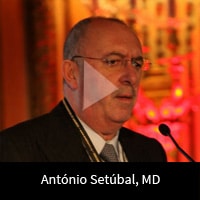
Endometriosis and adenomyosis
Many patients who have endometriosis also suffer from adenomyosis. Dr. Setubal talked about how an MRI, ultrasound, HSG, hysteroscopy, cystoscopy, and laparoscopy are all tools to diagnose adenomyosis. He also spoke about how adenomyosis is still an unknown disease. He finds the best way to treat patients suffering from this painful condition is to try and find a balance in how not to overtreat or undertreat the disease. Conservative surgery should always be the first approach, especially in women who want to preserve their fertility, he says.
A hysterectomy is considered when a patient desires it, family planning is complete, and the symptoms are incapacitating. Dr. Mettler warned that some patients who have had a hysterectomy may have relief from their adenomyosis pain, but may still suffer from endometriosis, dispelling another myth that many general doctors believe.
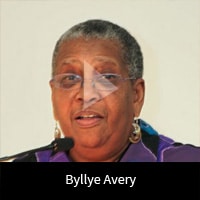
Endometriosis and pain
The world needs to know that endometriosis patients are in pain. Advocate Byllye Avery stressed that patients do not need to suffer in silence. Dr. Mettler recognized that some patients who have stage 1 endometriosis have a lot of pain and we have to pay attention. She also stressed that the pain endometriosis patients feel directly correlates to their quality of life.
Dr. DeGregoris went into depth regarding endometriosis and pain. He narrowed the pain endometriosis patients feel into two types of pain, nociceptive pain, and neuropathic pain. Nociceptive pain is a sharp, aching, or throbbing feeling. Neuropathic feels like a burning. Even though these pains can happen at the same time, it is crucial for doctors to sort them out because each type of pain requires different medical treatments. Gabapentin or Cymbalta can help neuropathic pain caused by endometriosis. Opioids are more effective for nociceptive pain than for neuropathic pain. But a warning for patients, opioids should only be used for short-term purposes, during pain flares. Using opioids over time can actually give patients a lower tolerance to pain.
Get a Second Opinion
Our endometriosis specialists are dedicated to providing patients with expert care. Whether you have been diagnosed or are looking to find a doctor, they are ready to help.Our office is located on 872 Fifth Avenue New York, NY 10065.
You may call us at (646) 960-3080 or have your case reviewed by clicking here.
